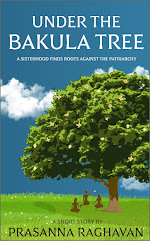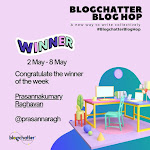Anything valuable is a treasure. You come to possess lots and lots of useful things in life--both material and non-material.
A treasure trove is a collection of stuff that gives you pleasure and value. It contains books; coins and pieces of jewellery made out of gold and other precious metals like diamonds, gemstones; relics of historical and cultural significance, the list are endless. Some have real values regarding coins and banknotes. But, some can find value only in the eyes of the beholder. A moth-eaten yellow piece of paper keeping a name or a line of writing can be of immense value to someone.
Memories too are treasures, though they lack material forms. Some people just throw away their lives once come to the realisation no memories are left for them to be treasured. No matter they are super-rich.
My family is a treasure for me, which cannot be given value.
The use of language is also a treas re. According to Cambridge Dictionary, a language is a "system of communication consisting of sounds, words, and grammar or a system of communication used by people in a particular country or type of work."
We know the letters of the alphabet are the building blocks of languages and a key among the achievements of the human race so far and n the future. Thus, it is a common treasure, built by the entire human race lived on this planet so far, so having access to it is considered merely eve yone's right. Though it's no always true.
My family is a treasure for me, which cannot be given value.
The use of language is also a treas re. According to Cambridge Dictionary, a language is a "system of communication consisting of sounds, words, and grammar or a system of communication used by people in a particular country or type of work."
We know the letters of the alphabet are the building blocks of languages and a key among the achievements of the human race so far and n the future. Thus, it is a common treasure, built by the entire human race lived on this planet so far, so having access to it is considered merely eve yone's right. Though it's no always true.
There are instances in human history where despotic rulers and communities have denied this right to the ajority. It was merely out of their fear of the majority developing through learning letters. That shows the value and power of letters.
The despotic rulers were quashed, their kingdoms were annexed into democratic nations and access to letters was made a universal human right at least in th ory. Democracy has come to cherish letters as a human treasure.
And developing letters into words and processing syntactic structures to organise them into meaningful sentences are an exclusive human treasure. The human brain, the left frontal cortex, plays a significant role in developing langu ges. According to researchers, that part of the brain involves 'simple summation of lexico-semantic processing for each word' and the processing of syntactic structure in the 'selective integration of lexico-semantic information into sentence meaning.'
No other beings on earth possess that faculty to process language into thoughts.
A teacher by career, I have gained firsthand knowledge about the power of language development in children and youngsters. As a writer, now, I realise the critical importance of language in creative writing. I write in English, my second language, gives me a fantastic opportunity and responsibility. Without keeping letters as my valuable treasures, would any of my above endeavours have been possible, I wonder?
I hope all of you, reading this might have something to say about keeping the language as a valuable treasure. Please share it with others.
The despotic rulers were quashed, their kingdoms were annexed into democratic nations and access to letters was made a universal human right at least in th ory. Democracy has come to cherish letters as a human treasure.
And developing letters into words and processing syntactic structures to organise them into meaningful sentences are an exclusive human treasure. The human brain, the left frontal cortex, plays a significant role in developing langu ges. According to researchers, that part of the brain involves 'simple summation of lexico-semantic processing for each word' and the processing of syntactic structure in the 'selective integration of lexico-semantic information into sentence meaning.'
No other beings on earth possess that faculty to process language into thoughts.
A teacher by career, I have gained firsthand knowledge about the power of language development in children and youngsters. As a writer, now, I realise the critical importance of language in creative writing. I write in English, my second language, gives me a fantastic opportunity and responsibility. Without keeping letters as my valuable treasures, would any of my above endeavours have been possible, I wonder?
I hope all of you, reading this might have something to say about keeping the language as a valuable treasure. Please share it with others.








0 comments
Post a Comment